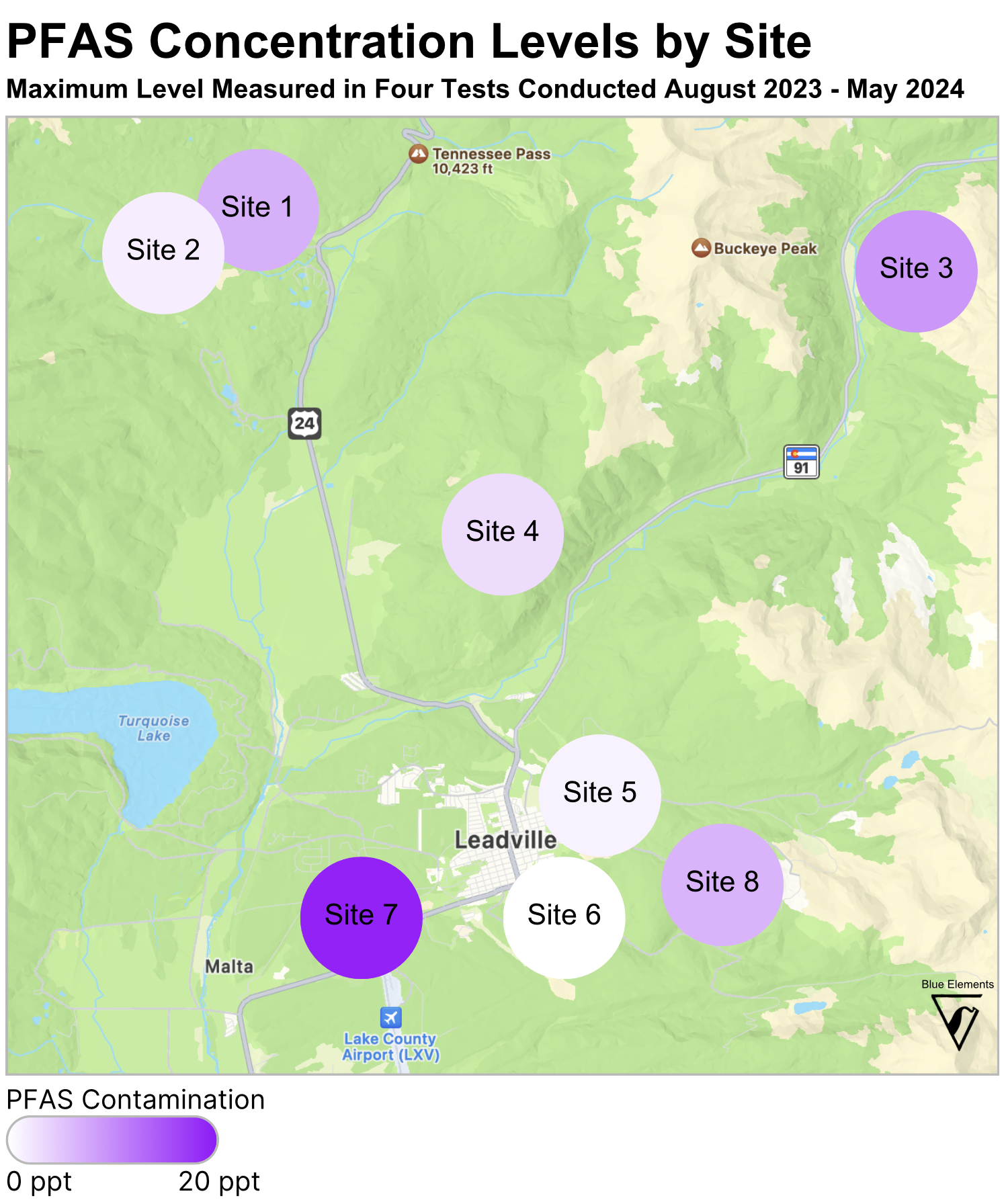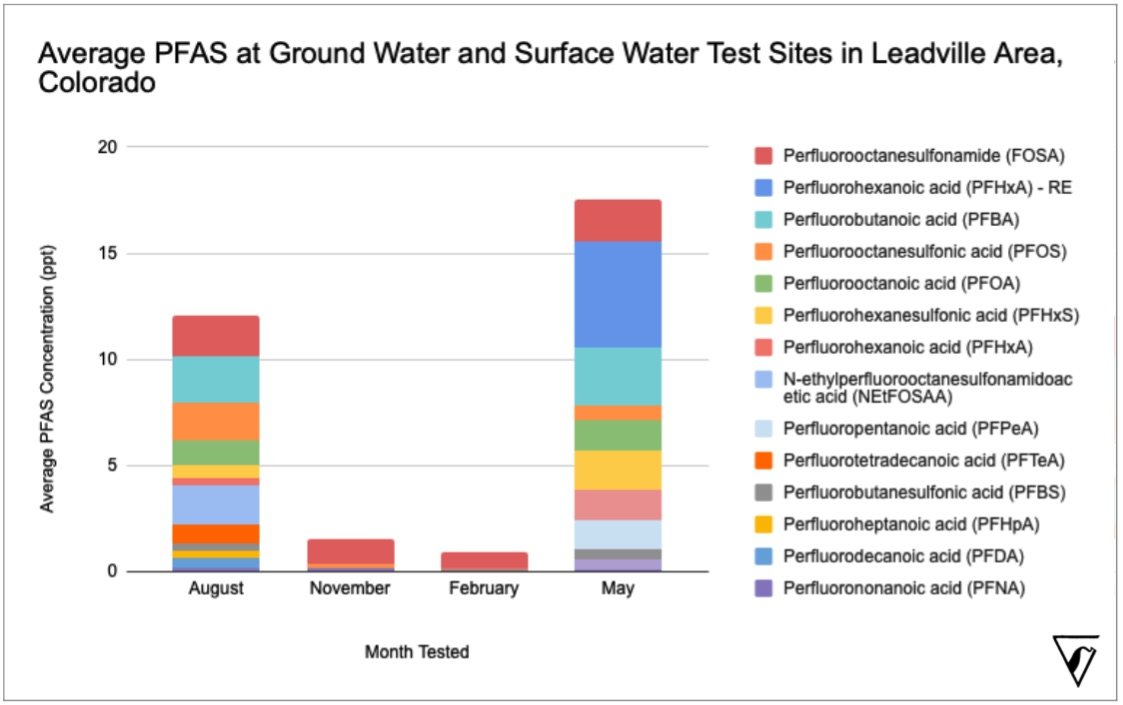Leadville's Public Water Supply Free of 'Forever Chemicals,' But Groundwater Shows Contamination, Study Finds
LEADVILLE, CO - A comprehensive study conducted by Blue Elements from August 2023 to May 2024 has found the presence of per- and polyfluoroalkyl substances (PFAS), commonly known as 'forever chemicals,' in Leadville and Lake County water sources. The study raises concerns for residents, animals, and livestock relying on private wells, ground and surface water sources.
Key Findings:
Leadville's public drinking water system showed no detectable levels of PFAS, ensuring safety for residents connected to the municipal supply.
PFAS contamination was detected at all groundwater and surface water test sites.
Lower concentration levels were detected during winter months (November and February) compared to warmer months (April and May), pointing to a potential seasonality effect of PFAS exposure in Leadville and Lake County.
In total, 14 different PFAS compounds were identified across the tested sites.
"While we're relieved to confirm the safety of Leadville's public water supply, our findings highlight the need for ongoing monitoring into PFAS contamination in our region," said Emily Osborn, Executive Director at Blue Elements. "It's crucial for residents using private wells or surface water sources to be aware of the potential risks".
Board President and Leadville resident Kate Kaufman adds, “We must not forget our vulnerable communities in Leadville who rely on private wells. Many of these residents lack the means to address contamination or to purchase filtered drinking water. It’s essential that we provide support and solutions to ensure all residents have access to clean, safe drinking water.”
The study emphasizes the importance of regular testing for private well owners and those who use surface water for themselves and their animals. Livestock and agriculture in the area may also be affected by PFAS contamination.
These findings are particularly concerning as PFAS are known carcinogens, and there are currently no established 'safe' levels of exposure. The Environmental Working Group (EWG) states, "Very low doses of PFAS have been linked to suppression of the immune system. Studies show exposure to very low levels of PFAS can also increase the risk of cancer, harm fetal development and reduce vaccine effectiveness.”
The Environmental Protection Agency (EPA) recently finalized the National Primary Drinking Water Regulation for PFAS on April 10, 2024, underscoring the growing concern over these persistent chemicals.
In response to these findings, Blue Elements plans to expand their monitoring efforts to 20 sites across Lake and Chaffee Counties in the upcoming 2024-2025 project year to gather more comprehensive data on PFAS contamination in the region.
For further inquiries, please contact: emily@blueelements.org
Study Results Maps and Graphs
Additional data available upon request.



